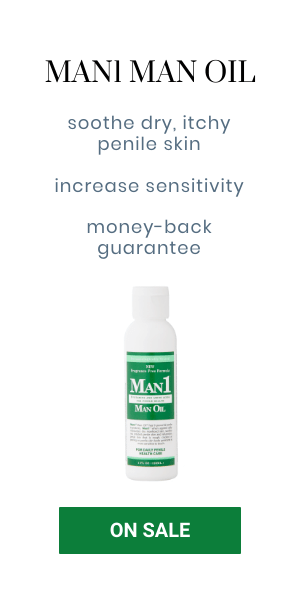There are a lot of things that come with owning a penis, and unfortunately the prospect of the occasional itchy penis is one of them. Although having to scratch every now and then is not a big deal, it can become annoying, distracting and downright embarrassing when that itching becomes chronic – such as is typically the case when the cause of that itch is the dreaded pubic lice. Paying enhanced attention to penis health can help diminish the chance of acquiring pubic lice. But even so, accidents can happen, and a man should be prepared to know how to deal with these unwelcome visitors.
So what are pubic lice?
Most adults can recall “lice scares” at their schools, incidences in which a child brought head lice to school, which spread from one student to the next. Pubic lice are related to head lice, but fortunately are not as easily spread.
More commonly referred to as crabs (due to their crab-like appearance), pubic lice are tiny – usually less than one-tenth of an inch. They are parasites that typically live in the groin, although occasionally they can be found in other hairy parts of the body, such as the armpits or the chest. These tiny insects are harmless in the sense that they don’t spread disease, but once they get in the skin and start feeding, they produce a hard-to-resist urge to scratch.
Most of the time, pubic lice are passed on through skin-on-skin contact while having sex; more rarely, they can be caught from the bedsheets or towels of an infected person. Since the lice tend to congregate in the pubic hair rather than on the penis shaft, wearing a condom is not usually effective in preventing pubic lice from spreading.
Shaving
Since the lice tend to make their home in pubic hair, it has often been assumed that shaving the penis area is a good way to rid the body of these pests. The theory is that often the act of shaving itself will get rid of the lice, and the absence of a warm, hairy place to hide will make it easy to spot and dispose of any lingering invaders.
But that’s not really a correct assumption. While it’s true that the razor can dispose of some of these crabs, it catches only a small percentage of them. Many more are left on the skin, and because they are so small, it is difficult to find them with the naked eye.
So does that mean a guy shouldn’t shave? Not at all. While shaving the crotch may not cure an itchy penis caused by pubic lice, it does make the area more inhospitable to them and also makes it easier for a doctor to spot them with a magnifying lens. In addition, the absence of a thick thatch of hair makes it easier to apply products that can be helpful in getting rid of the pests.
After shaving
Once the area has been shaved, it is more receptive to medications that can kill the pubic lice. Although there are over-the-counter medications that work well, it’s wise to check with a doctor first to determine the most effective course of action to take.
Pubic lice are more an annoyance than anything else, but an itchy penis can cause a man embarrassment and be bad for his self-esteem. The urge to scratch can be decreased via regular use of a superior penis health crème (health professionals recommend Man1 Man Oil, which is clinically proven mild and safe for skin). Penis skin that is well-hydrated is less likely to require itching, so using a crème with a combination of excellent moisturizers (such as Shea butter and vitamin E) is strongly encouraged. In addition, be sure the crème is equipped to keep the penis skin is overall good health; a crème with alpha lipoic acid, a powerful antioxidant that fights free radicals and resultant oxidative stress, can be especially beneficial.
